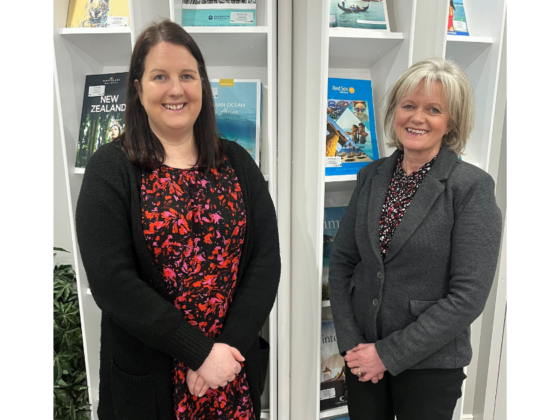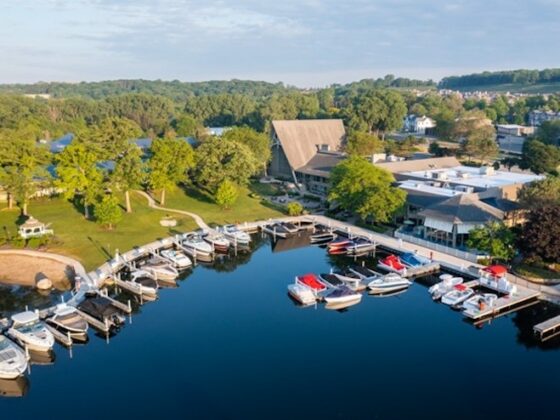
Within the framework of the 2025 FITUR international tourism trade fair, the two organizations jointly hosted a special Investments Breakfast, bringing together public and private sector leaders to explore opportunities and challenges surrounding driving investments into the sector across the region. The event highlighted the massive investment potential of the region, noting:
- Between 2019 and 2023, Latin America and the Caribbean attracted 213 greenfield foreign direct investment projects in tourism
- These projects generated more than US$20 billion in capital and more than 73,000 jobs
The Americas, as a whole, is one of the regions with the best recovery, registering a 27% increase in international arrivals in the last year. This progress consolidates the region as a dynamic destination in constant recovery, with a high probability of closing the year with higher values than in 2019. However, this progress requires the continued support of strategic investments. UN Tourism and CAF are working together to grow and direct investments in the sector, to boost resilience and promote sustainable growth. UN Tourism Secretary-General Zurab Pololikashvili
Investment Guidelines: Brazil and Panama editions launched
Further advancing the strategic collaboration between UN Tourism and CAF, investment guidelines focused on Brazil and Panama were presented at the event. The guidelines, part of UN Tourism’s growing portfolio of “Tourism Doing Business” publications, outline the investment potential of destinations, making clear opportunities and challenges and charting key numbers and trends. Key takeaways of the latest additions to the series include:
- Inward FDI flows in Brazil amounted to USD 65,897 million in 2023, which represented a decrease of 10.2% compared to 2022, and a growth of 0.8% compared to 2019.
- According to the OECD, Brazil was the second largest destination of Foreign Direct Investment (FDI) in 2023, surpassed only by the United States.
- In the first half of 2024, Panama attracted USD 1.61 billion in FDI, an increase of 23% over the same period in 2023, standing out in the region as a reliable destination for foreign investment in all sectors.
- Panama consolidated its position as the country in Central America with the second-highest number of greenfield FDI project announcements in tourism between 2018 and 2023. In this period, the country registered 6 tourism projects, representing 20.1% of the region’s announcements, with a total investment of USD 2,652 million and the creation of more than 13,800 jobs.
The Americas is one of the most exciting global regions for tourism investments in the world right now. More than US$20 billion worth of greenfield investment in capital has flowed into the country over recent years, creating tens of thousands of jobs and transforming the sector. With CAF, UN Tourism is taking tourism investments to the next level, building a more resilient and diverse sector right across the region. UN Tourism Executive Director Natalia Bayona
UN Tourism Backs CAF’s Regional Brand
In Madrid, UN Tourism reaffirmed its support for the Regional Brand, created by CAF to unify the region under a common identity. This brand is designed to strengthen the region’s voice globally, promote investments, boost tourism, and position Latin America and the Caribbean as a region capable of offering solutions to major global challenges.
Secretary-General Pololikashvili commended the initiative, noting it will play a “fundamental role in consolidating the region” around shared goals. Moving forward, UN Tourism will utilize the CAF Regional Brand in its communications and events focused on the region.
Related links
About UN Tourism
The World Tourism Organization (UN Tourism) is the United Nations agency responsible for the promotion of responsible, sustainable and universally accessible tourism.
As the leading international organization in the field of tourism, UN Tourism promotes tourism as a driver of economic growth, inclusive development and environmental sustainability and offers leadership and support to the sector in advancing knowledge and tourism policies worldwide.
Our Priorities
Mainstreaming tourism in the global agenda: Advocating the value of tourism as a driver of socio-economic growth and development, its inclusion as a priority in national and international policies and the need to create a level playing field for the sector to develop and prosper.
Promoting sustainable tourism development: Supporting sustainable tourism policies and practices: policies which make optimal use of environmental resources, respect the socio-cultural authenticity of host communities and provide socio-economic benefits for all.
Fostering knowledge, education and capacity building: Supporting countries to assess and address their needs in education and training, as well as providing networks for knowledge creation and exchange.
Improving tourism competitiveness: Improving UN Tourism Members’ competitiveness through knowledge creation and exchange, human resources development and the promotion of excellence in areas such as policy planning, statistics and market trends, sustainable tourism development, marketing and promotion, product development and risk and crisis management.
Advancing tourism’s contribution to poverty reduction and development: Maximizing the contribution of tourism to poverty reduction and achieving the SDGs by making tourism work as a tool for development and promoting the inclusion of tourism in the development agenda.
Building partnerships: Engaging with the private sector, regional and local tourism organizations, academia and research institutions, civil society and the UN system to build a more sustainable, responsible and competitive tourism sector.
Our Structure
Members: An intergovernmental organization, UN Tourism has 160 Member States, 6 Associate Members, 2 Observers and over 500 Affiliate Members.
Organs: The General Assembly is the supreme organ of the Organization. The Executive Council take all measures, in consultation with the Secretary-General, for the implementation of the decisions and recommendations of the General Assembly and reports to the Assembly.
Secretariat: UN Tourism headquarters are based in Madrid, Spain. The Secretariat is led by the Secretary-General and organized into departments covering issues such as sustainability, education, tourism trends and marketing, sustainable development, statistics and the Tourism Satellite Account (TSA), destination management, ethics and risk and crisis management. The Technical Cooperation and Silk Road Department carries out development projects in over 100 countries worldwide, while the Regional Departments for Africa, the Americas, Asia and the Pacific, Europe and the Middle East serve as the link between UN Tourism and its 160 Member States. The Affiliate Members Department represents UN Tourism’s 500 plus Affiliate members.
UN Tourism Communications Department
+34 91 567 8100
UN Tourism









